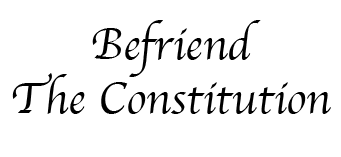What powers do the states have under the Constitution?
The Tenth Amendment to the Constitution reads: “The powers not delegated to the United States by the Constitution, nor prohibited by it to the States, are reserved to the States respectively, or to the people.” The federal government has only those powers that are specifically granted to it by the Constitution. To learn what those powers are read our Basics article “What powers are granted to the federal government by the Constitution?” All other powers are left to the states or the people unless the Constitution specifically says otherwise.
The Constitution places some restrictions on the power of the states. They are listed in Article 1, Section 10 of the Constitution. The restrictions prevent the states from intruding into matters best handled by the national government.
The states are restricted in their relations with other states and foreign governments. A state cannot enter any type of treaty, alliance, or agreement with another state or foreign country, engage in war, or tax import and exports.
The states are restricted from making certain types of laws. A state cannot pass laws that punish a person for doing something that was not illegal when they did it (know as ex post facto laws). A state cannot pass laws that free a person from honoring contracts they have entered. A state cannot pass laws that declare a group of people guilty of a crime (know as a bill of attainder).
States are also prevented from coining money, printing currency, or granting titles such as king or queen. The states are also preventing from keeping an army or navy.
All others powers, except those given to the federal government, are left to the states or the people. They are too numerous to list.
The Founders gave the federal government just enough power to do its limited job and nothing more. They intended that the states, local governments, and the people themselves should handle most things and hold most of the power of government.
Published July 13, 2017



